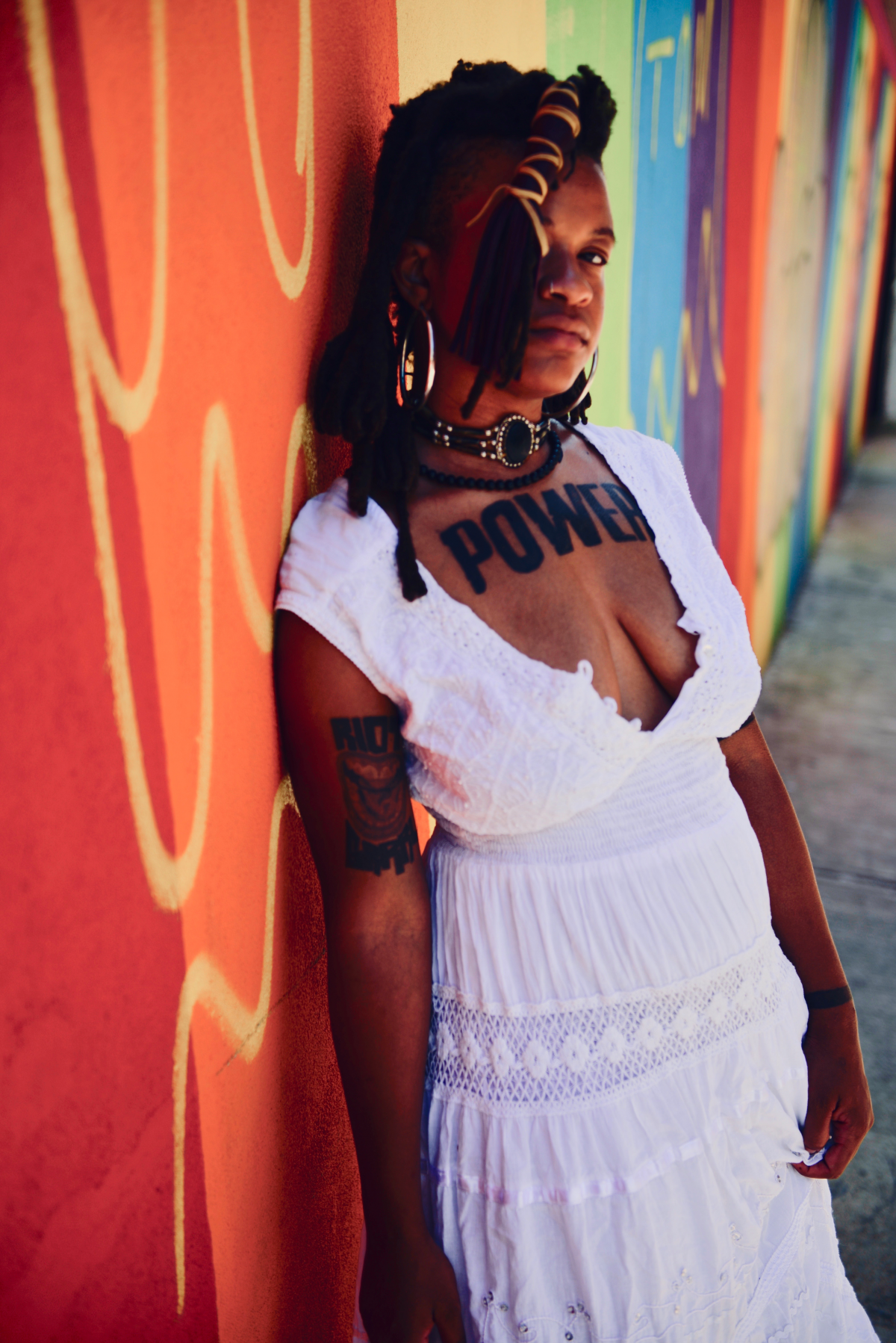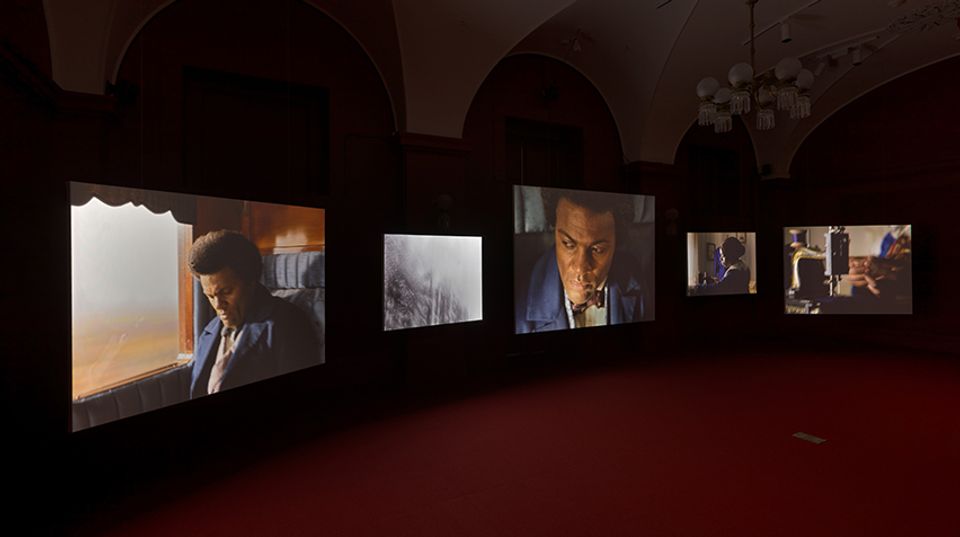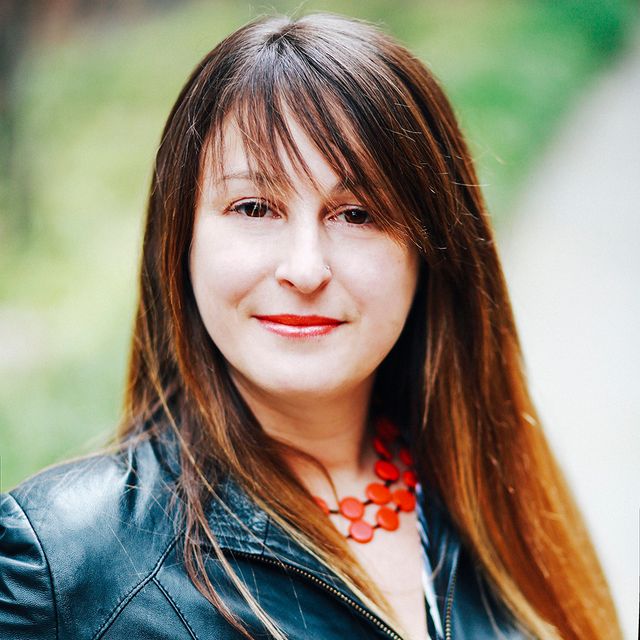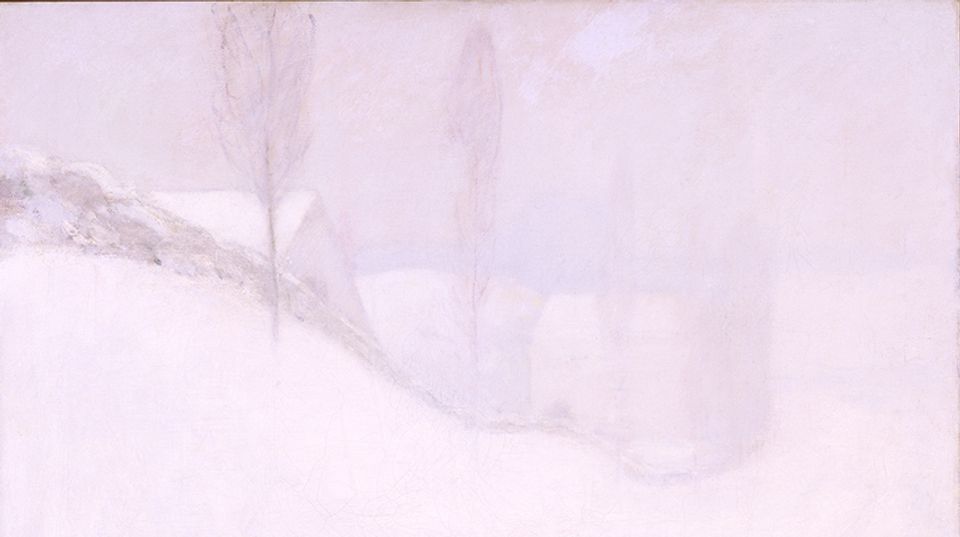From 2011 to 2020, SAAM hosted Luce Unplugged, a free, monthly concert series that celebrated the work of local musicians in its Luce Foundation Center. Since in-person events have been restricted during the pandemic, we teamed up with local music podcast, Hometown Sounds, to continue to bring you music and conversations from your favorite DC artists. In our April episode, singer-songwriter Jenna Camille describes her creative point of view and how it changed in 2020. To hear the full interview, visit hometownsoundsdc.com.
Hometown Sounds: The last year has been tough for a lot of people. The New York Times actually did a piece focusing on how you lost not one, not two, but three jobs. Tell us a about what has changed in your music and your life in the past year.
Jenna Camille: A lot has changed. I don't live in DC anymore. I live in Atlanta, Georgia, which is where I was born. I'm kind of restarting. Last year took a lot out of me. It was also a very interesting year because I was able to create a lot and release three albums. It was a good time creatively, but it was hard because I felt like I had lost a part of myself. I define myself largely by being an artist and I felt like, in a way, I wasn't one anymore because I wasn't able to perform. I wasn't able to present myself as an artist. I struggled with that and with how I wanted to continue. That’s something I had conflicts about before the pandemic and being presented with this situation where I had to redefine everything and restart everything forced me to ask myself why I still wanted to do this and what continuing music looks like for me.
HS: Tell us about the album that you made with DC group Columbia Nights. What was the inspiration for Bright Moments?
JC: A little over three years ago now, we started working together on a different album that is finally about to be released in July. Bright Moments was kind of like an intermediate project that we started working on during the pandemic. Essentially, the idea was to create one-minute songs for Instagram. It was just something quick and fun to do. A friend of ours, Nelson Bandela, did some visuals for us. Part of the goal, which I am tremendously thankful for, was to create income for me because I had lost my jobs. It was like, okay, what else can we create right now to keep things flowing? It was more or less a teaser project to set up for the main album, which is coming out in July on HiPNOTT Records.
HS: Tell us about the song My Country, My Love from your album The Time is Now. How is this track different from your earlier work?
JC: Last year, I started working with samplers and I started to veer towards hip hop instrumental projects. For this project, I was motivated by what happened with George Floyd and my frustration with the response to that situation. I remember telling one of my roommates that I was frustrated with what I felt was the cycle of events that occurs when a young, Black person gets killed by police. You know, there's posting on Instagram, there's thoughts and prayers, there's marching, there's protests, there's calls for action. Then there's this return to the normal state of events. During that time, I felt like there was less pressure to go back because, at the time, there wasn't much to go back to. Most of us were still at home. We weren't working. There was no need to go back into the system because the system wasn't operating. I felt like that was a prime time to really get engaged and do some organized activities, rather than just protest. We don't have jobs that we can use as an excuse. We don't have anything like that because everything is shut down, so let's organize. I felt like, you know, the time is now. Let's start organizing or pushing for a real revolution so that we don't have to continue this cycle of events anymore.
HS: Some of your songs feature traditional vocals while others are instrumental compositions that include samples and futuristic beats. What is it like to manage these discrete parts of your sound?
JC: I don't really think much about it, to be honest. I was talking to one person who was saying that they don't want to confuse their audience by putting out different things. For me, I think less like an industry artist and more like somebody that is putting art up in a gallery. It’s what I feel when I'm creating. Then I post it for people to observe and see and comment on, or interpret and analyze, or whatever it is that people do when they experience music. I don't care too much about genre. When people ask me about genre, I either say I'm genre fluid or genre-less. Life is too short to really be so mechanical about everything. If we have the power to create things and post them at will, and there's no industry exec that's in my way, I'm just going to do it because I can. I have the power to do it. I do it because I want to do it. And, you know, people dig it, so I keep doing it. I have something for people who want to listen to me sing and I also have something for people who enjoy beats and lo-fi stuff.
HS: What does the future hold for you? Can we expect more music on your Bandcamp page and more collaborations?
JC: Oh yeah, for sure. You can expect the Golden Browne project. You can expect more instrumental projects this year. I have one that I'm working on right now that I think I will be naming Faith, which is my mother’s middle name. I will be alerting everyone about that as soon as it's ready. So that's on the radar and then, you know, whatever happens, happens. We'll see.



















